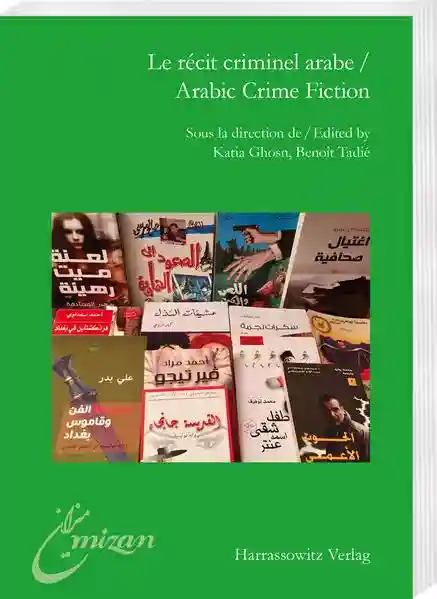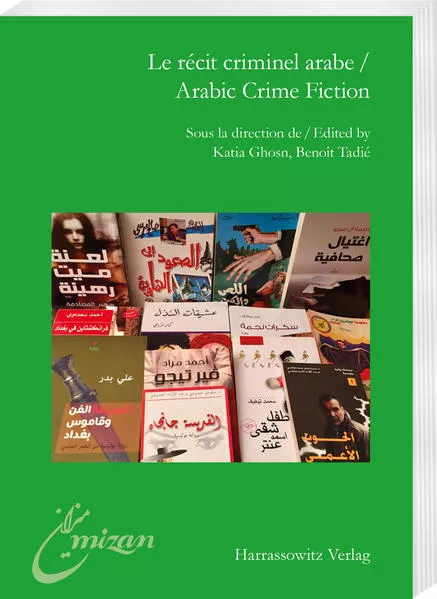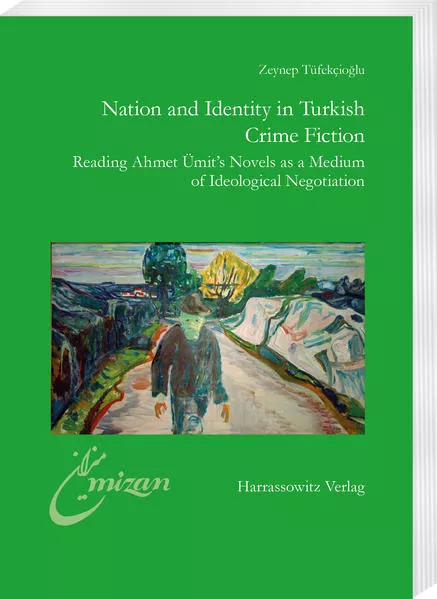Mîzân. Studien zur Literatur in der islamischen Welt
Le récit criminel arabe / Arabic Crime Fiction
Chronologie aller Bände (1 - 2)

Die Reihenfolge beginnt mit dem Buch "Le récit criminel arabe / Arabic Crime Fiction". Wer alle Bücher der Reihe nach lesen möchte, sollte mit diesem Band von Zeynep Tüfekçioğlu beginnen. Die Reihe umfasst derzeit 2 Bände. Der neueste Band trägt den Titel "Nation and Identity in Turkish Crime Fiction".
- Anzahl der Bewertungen für die gesamte Reihe: 0
- Ø Bewertung der Reihe: 0
Diese Reihenfolge enthält 2 unterschiedliche Autoren.
- Band: 32
- Autor: Ghosn, Katia
- Anzahl Bewertungen: 0
- Ø Bewertung:
- Medium: Buch
- Veröffentlicht: 24.02.2021
- Genre: Krimi
Le récit criminel arabe / Arabic Crime Fiction
Arabic fiction has thematized crime ever since the classical period. However, the existence of detective stories or, more generally, of crime fiction as a genre within Arab culture has yet to be fully acknowledged. This book therefore offers both a theoretical reflection on this genre in its context and a set of studies on instances of crime fiction in the Arab world. Covering a vast historical and geographical range, it tackles famous writers as well as authors of young adult fiction, deals with the current practitioners of noir as well as with classical detective stories, and also focuses on the adjacent fields of film and television production.
Arabic Crime Fiction / Le récit criminel arabe thus fills a theoretical and historical gap in current scholarship. Bringing together specialists of Arab literature and cinema and/or crime fiction, it provides an overview of a rich and varied genre, at the crossroads between the narrative, philosophical, and legal traditions of the Arab world, the realities of contemporary society, and the international forms of crime fiction. It thus demonstrates that Arabic crime fiction does, indeed, exist, even though it is not yet fully recognized by the publishing market and academic institutions.
Arabic Crime Fiction / Le récit criminel arabe thus fills a theoretical and historical gap in current scholarship. Bringing together specialists of Arab literature and cinema and/or crime fiction, it provides an overview of a rich and varied genre, at the crossroads between the narrative, philosophical, and legal traditions of the Arab world, the realities of contemporary society, and the international forms of crime fiction. It thus demonstrates that Arabic crime fiction does, indeed, exist, even though it is not yet fully recognized by the publishing market and academic institutions.
- Band: 33
- Autor: Tüfekçioğlu, Zeynep
- Anzahl Bewertungen: 0
- Ø Bewertung:
- Medium: Buch
- Veröffentlicht: 03.02.2021
- Genre: Krimi
Nation and Identity in Turkish Crime Fiction
Best known for his crime fiction, Ahmet Ümit is among the most celebrated and prolific writers of contemporary Turkish literature. Yet despite its popularity in Turkey, and increasing recognition abroad, Ümit’s fiction has seldom been subject to scholarly inquiry. Adopting the framework of cultural narratology, Nation and Identity in Turkish Crime Fiction provides the most comprehensive analysis to date of Ahmet Ümit’s crime novels, seeking thereby to fill a gap, and also to widen our understanding of the politics of the Turkish novel by extending the focus of literary and cultural criticism to include the field of contemporary popular literature.
Through a consideration of the transformations and changing dynamics that have marked Turkish culture and politics over the last two decades, Zeynep Tüfekçioğlu conceptualizes Ümit’s fiction as a medium of ideological negotiation. The study unveils the significance of the various narrative techniques, literary tropes and themes found in Ümit’s fiction, which he employs to contest dominant discourses of national identity, history, and cultural memory. Tüfekçioğlu shows that since his early novels, Ahmet Ümit has been following and adopting the global trends in the genre, while also appropriating and subverting them for the purposes of cultural resistance. As such, this book will appeal to scholars of Turkish literary and cultural studies, as well as to scholars and devoted readers of crime fiction.
Through a consideration of the transformations and changing dynamics that have marked Turkish culture and politics over the last two decades, Zeynep Tüfekçioğlu conceptualizes Ümit’s fiction as a medium of ideological negotiation. The study unveils the significance of the various narrative techniques, literary tropes and themes found in Ümit’s fiction, which he employs to contest dominant discourses of national identity, history, and cultural memory. Tüfekçioğlu shows that since his early novels, Ahmet Ümit has been following and adopting the global trends in the genre, while also appropriating and subverting them for the purposes of cultural resistance. As such, this book will appeal to scholars of Turkish literary and cultural studies, as well as to scholars and devoted readers of crime fiction.

